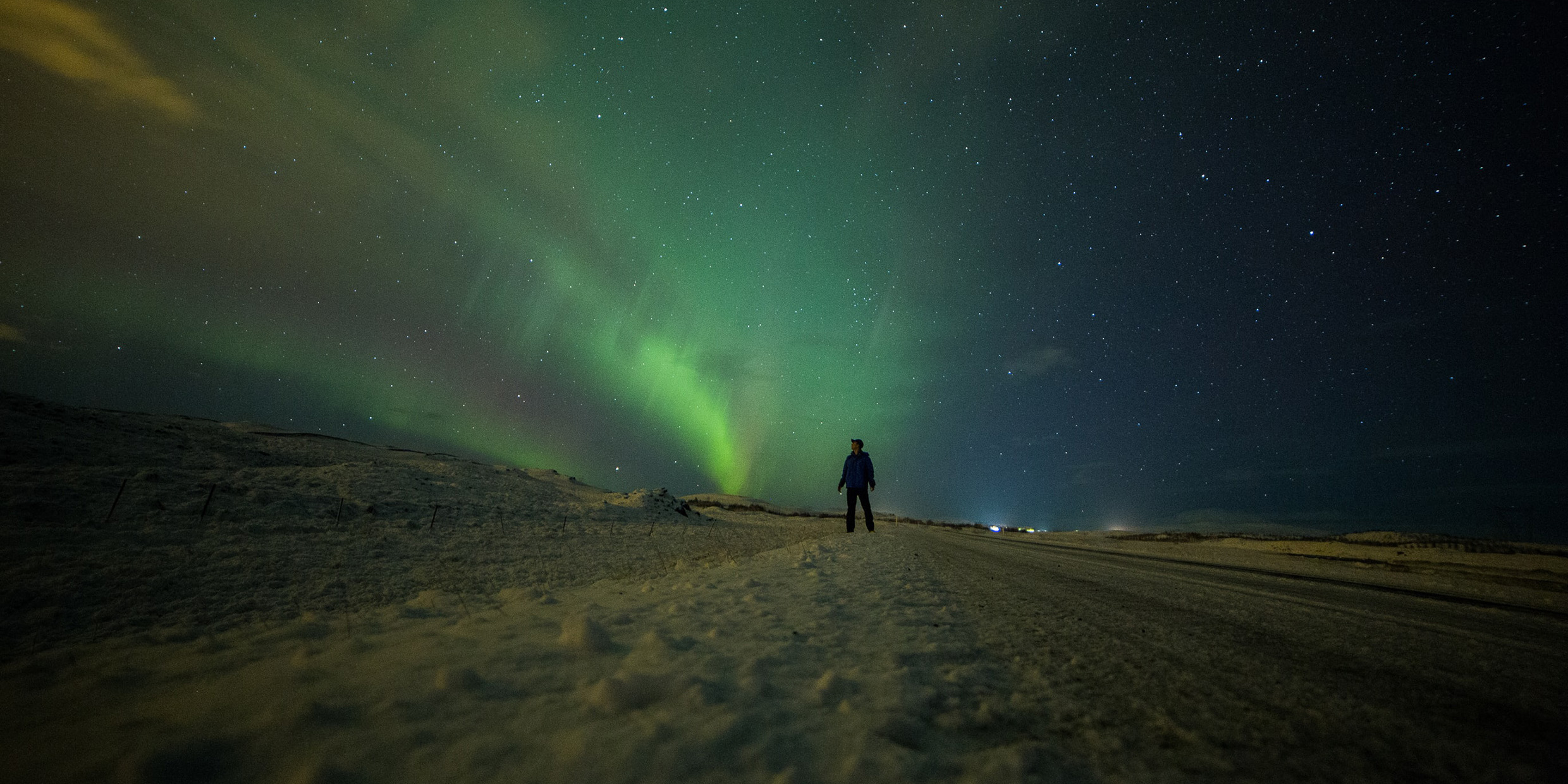Originally published 2 January 2005
The drama of the night sky comes in two acts, as the Milky Way sweeps overhead in summer, then again in winter. These are the seasons when our evenings are posted with bright stars and constellations. I’m a granddad now, but when my four children were young we spent many summer nights stargazing together. I told the kids stories of swans, eagles, lyres, dolphins, and darts. I taught them star names: Vega, Deneb, Altair, Zubenelgenubi, and Zubeneschamali.
But it was winter stargazing I liked best, selfishly perhaps. We were living then in a too-small house, and when winter cooped us up inside things sometimes got very close. My escape was to a granite bluff overlooking a nearby pond, a place secured from the village by woods but open above to infinity. When snow lay heavily on the ground, I would slip away from the house for an hour or two on the bluff, in a shower of starlight.
Under snow the black ice of the pond stretched and groaned like an armored giant rumbling in his sleep, and in the sky another giant — that old blind codger Orion — stumbled westward, dragging the winter stars in tow.
In summer, our view of the universe is towards the luminous center of the Milky Way Galaxy, and the sky is awash with the light of the unseen billions of stars that make up the bulk of the galaxy. The dome of the summer night seems near and enclosing. In winter, we look towards the outer edge of the galaxy. The sky is darker, deeper, and the stars march away to infinity.
The brighter winter stars — Sirius, Procyon, Rigel, Betelgeuse, Castor, and Pollux — glisten like shards of ice. Of course they are anything but cold. The temperature on the surface of blue-white Rigel, in Orion’s foot, is 10,000 degrees Centigrade, hot enough to melt iron. The star’s cold gleam is an artifact of distance — and the crisp clarity of the winter sky.
Among the less bright stars, the twinkling Pleiades cluster is a favorite icon of winter. The Seven Sisters they are sometimes called, although only six stars are usually visible. There are actually hundreds of stars in the cluster, most too faint to be seen with the unaided eye, new stars, recently born, wrapped in the swaddling gases of their birth.
And there, just there, the middle “star” of Orion’s sword, not a star at all, a blur, the Great Orion Nebula. The 18th century English cosmologist William Derham believed the patch of hazy light in Orion’s sword was a peephole in the sky through which we observe the radiance of Heaven. Telescopes reveal a churning furnace, cooking up suns by the dozens, by the hundreds.
On the bluff above the pond, I’d lay on my back in the snow, my eyes stinging with cold, my fingers curled in mittens, and let my imagination drift upward in the transparent air, beyond Sirius, Rigel, and Betelgeuse, beyond the Pleiades, beyond the faint smudge of the Great Orion Nebula, beyond the almost invisible drapery of the winter Milky Way, into a space so deep with silence and solitude that terror takes precedence over beauty. I shivered not just with cold, but also with a kind of metaphysical fear. In the snowy, muffled silence of the winter night it was easy to feel terribly, existentially alone.
If there is a patron saint of the winter stars it is the artist Vincent Van Gogh. He was knowledgeable about astronomy, and his insomnia gave him ample opportunity to observe the stars. His paintings of the night sky continue to disturb us today — those whirling vortices of color, those vertiginous depths. The last winter of his life, before his tragic suicide, was spent in an asylum at Saint-Rémy in the south of France. From the barred window of his room he looked into the cold stars and what he saw offered no consolation.
The winter sky is not for kids or cowards. Let them graze on the near and embracing constellations of summer. Deep space, winter space, those yawning infinities, those eons, that singular moment 13 billion years ago when everything that exists today was a point of fire, infinitely hot — these are things that either affirm you or destroy you, either beckon you to an encounter with Ultimate Mystery or send you racing home to the cosy comfort of the familial hearth and familiar gods.
Whatever prayers we hurl into the winter sky sink without a trace.



